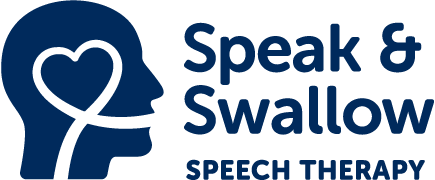Speech Therapy for Aphasia
Do you know someone impacted by Aphasia? This condition is life-changing, but did you know Speech Pathologists are trained to help you improve your communication through speech therapy for Aphasia?
Whether you’re at the beginning of your aphasia journey, or have been making your way down this path for a while, our Speech Pathologists in North Brisbane are here to support you.
What is Aphasia
Aphasia is a language disorder caused by damage to certain parts of the brain. These brain areas help us speak, understand, read, and write. Damage to the brain is typically caused by a stroke or traumatic brain injury, but in some cases, it may develop more gradually – for example, from a brain tumour or rare progressive neurological condition.
Because our brains and language abilities are so complex, Aphasia can affect people in different ways. Some may struggle to find the right words, while others may speak fluently but don’t make sense. Understanding the type of Aphasia a person has can help in finding the best ways to support them.
You can learn more about the different types of Aphasia in one of our recent articles.
What is Speech Therapy for Aphasia
Because Aphasia affects everyone differently, speech therapy for Aphasia is very individualised. For some, this might look like working on improving word finding abilities or using scripts to help communicate important information for everyday life.
A Speech Pathologist works with a person with aphasia and their support system to develop meaningful goals to improve functional communication and improve quality of life. It is important that speech therapy begins as soon as possible to maximise recovery and start seeing improvements. Typically, most progress is made in the first 6-12 months due to enhanced neuroplasticity, however some people with aphasia can see improvements many years after their initial diagnosis.
Speech therapy can take place in the home, in a clinic or in the community. These speech therapy sessions typically go for 45-60 minutes, and home practice will often be recommended to see the best outcomes.
With time, the right support, and the help of a Speech Pathologist, people with Aphasia can continue to engage meaningfully in life and relationships.
The Benefits of Speech Therapy for Aphasia
Speech therapy for aphasia is beneficial for a number of reasons – here are a few!
Speech Therapy for Aphasia Can Support Mental Health and Wellbeing
Like anyone going through a life-altering experience, people with Aphasia can experience difficulties with mental health after a diagnosis. It can be overwhelming and scary going from being able to communicate, to suddenly having a limited ability to communicate your thoughts to others.
Engaging in speech therapy can reduce feelings of isolation and help people with Aphasia to find ways to connect with the people most important to them. This is particularly important in the early stages after a diagnosis where communication is most difficult.
Your speech pathologist may also recommend you attend Aphasia groups within your area. Aphasia groups provide supportive environments for people with aphasia to connect with others and their families going through similar experiences. They can also be an encouraging space to practice your communication.
Speech Therapy for Aphasia Can Support Functional Communication
One of the most meaningful areas to focus on in speech therapy for aphasia is improving functional communication. This generally involves considering the individual’s day-to-day life and meaningful communication interactions they would like to engage in.
Speech therapy for aphasia, for example, may include working on helping an individual to request their preferred beverage, expressing emotions, engaging in conversation with key people, and maintaining social connections with friends.
Speech Therapy for Aphasia Can Improve Quality of Life
It is well known that aphasia can have a big impact on the lives of people with aphasia and their immediate communication partners. By engaging in speech therapy regularly, an individual can work towards goals to support their quality of life – including their ability to engage in activities, and conversations, that are meaningful to them. This can result in positive outcomes like increased independence in the home, a return to meaningful activities like hobbies, and forming stronger social networks with existing and new friends .
Regular engagement with a speech pathologist following a diagnosis of Aphasia can lead to improved outcomes for the individual and their family, which can go a long way in maintaining familial relationships and alleviating carer burden.
If you’re navigating Aphasia for the first time, know that support is available, and that you’re doing an important and powerful job by showing up and learning. The team at Speak and Swallow Speech Therapy North Brisbane can guide you every step of the way.
